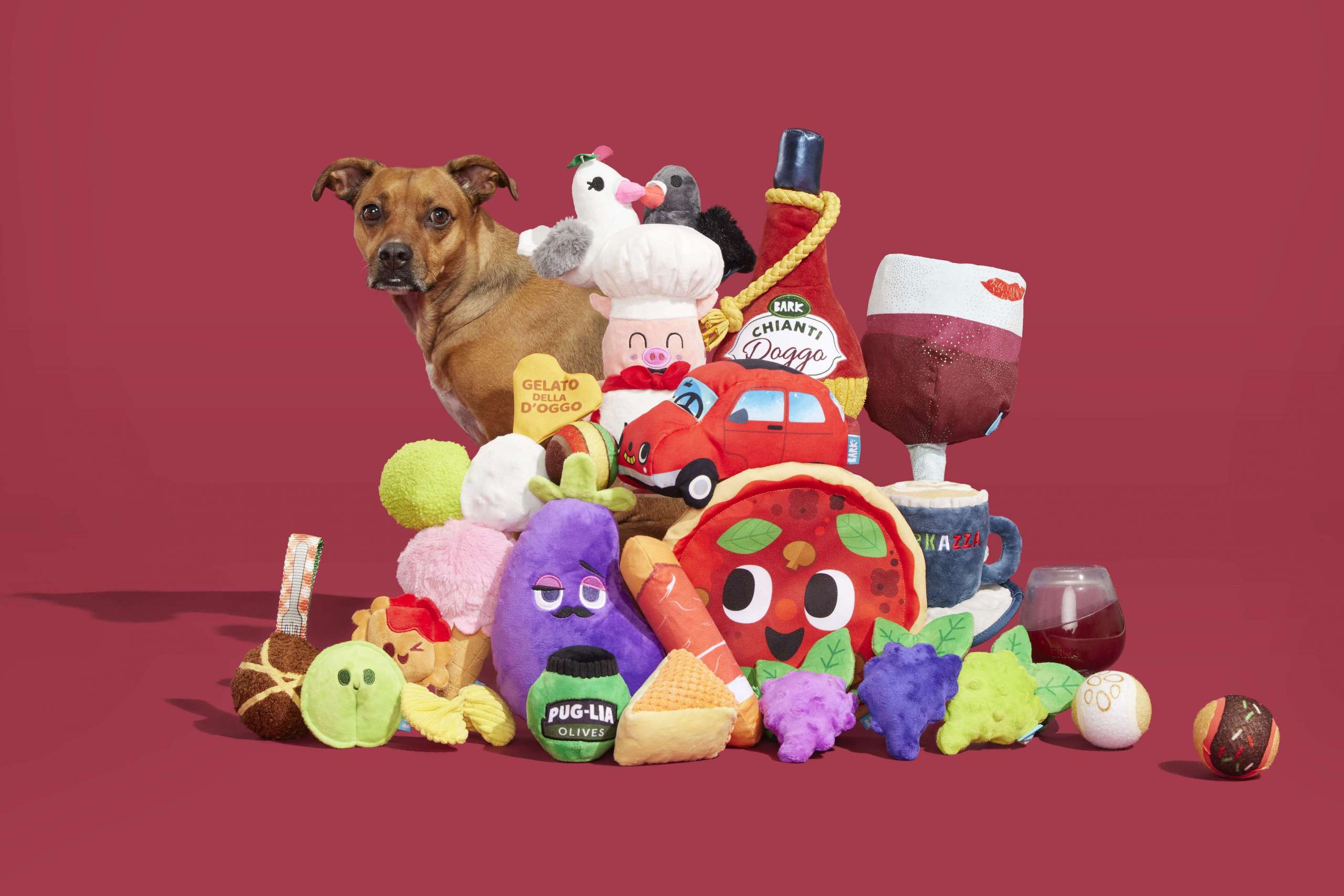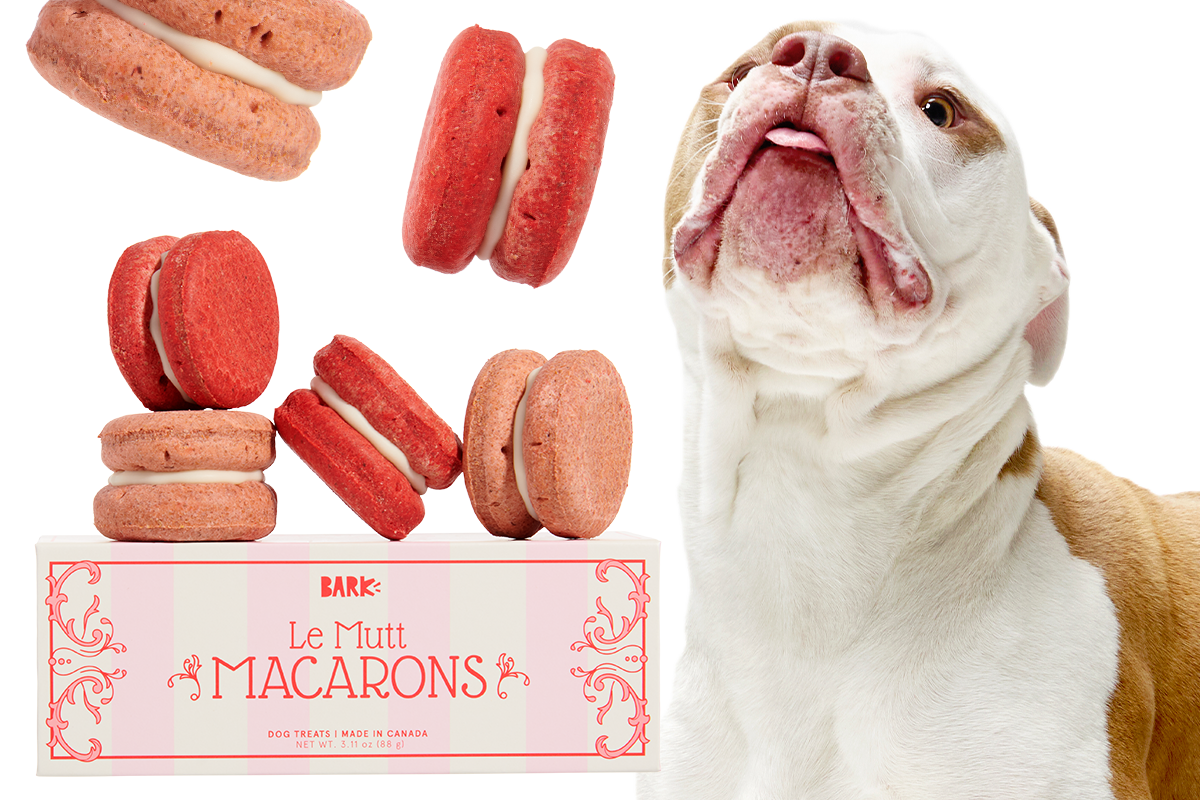Occasionally, your dog has an off day. You might recognize low energy or odd behavior, and it may be something dog probiotics can help with. Probiotics for different dog breeds have quickly grown in popularity throughout the dog-owner community, and for good reason. They’re a smart way to encourage a healthy gut, and enjoy a whole host of related effects.
The question is, does your dog need probiotics?
From reducing stress to improving digestion, dog probiotics could be a simple and effective way to manage various doggy health issues. Additionally, the general benefits of probiotics make them an excellent choice for nearly any dog. Read on to find out more about the telltale signs and symptoms aided with probiotics, and start supporting your pup’s gut health today.
What Are Probiotics?
For those unfamiliar with probiotics, a short definition could assist you on your upcoming journey through doggy gut health.
Probiotics are beneficial bacteria that reside in your gut and promote healthy digestion, nutrient absorption, and other essential bodily functions.1 You have them and your dog has them. Of course, there are some significant differences between human gut health and dog gut health, but the idea is basically the same.
What else is there to know about probiotics? Consider the following:
- Easily consumed – Probiotics can be given in the form of liquid, powder, capsule, or even as a delicious doggy chew. The flexible nature of probiotics makes it easy to introduce them to your dog through their dog food or as a snack.
- Safe and natural – Probiotics offer an easy way to encourage healthy digestion in a fully natural and safe way. Side effects related to probiotics are minimal and rare. On occasion, some dogs might experience some short-term gastrointestinal discomfort when first trying a dog probiotic.2 That said, most dogs won’t experience any negative side effects.
- Simple and effective – While researchers continue to explore the effects of probiotics for dogs, anecdotal evidence points toward a range of potential benefits of regular probiotic supplements.
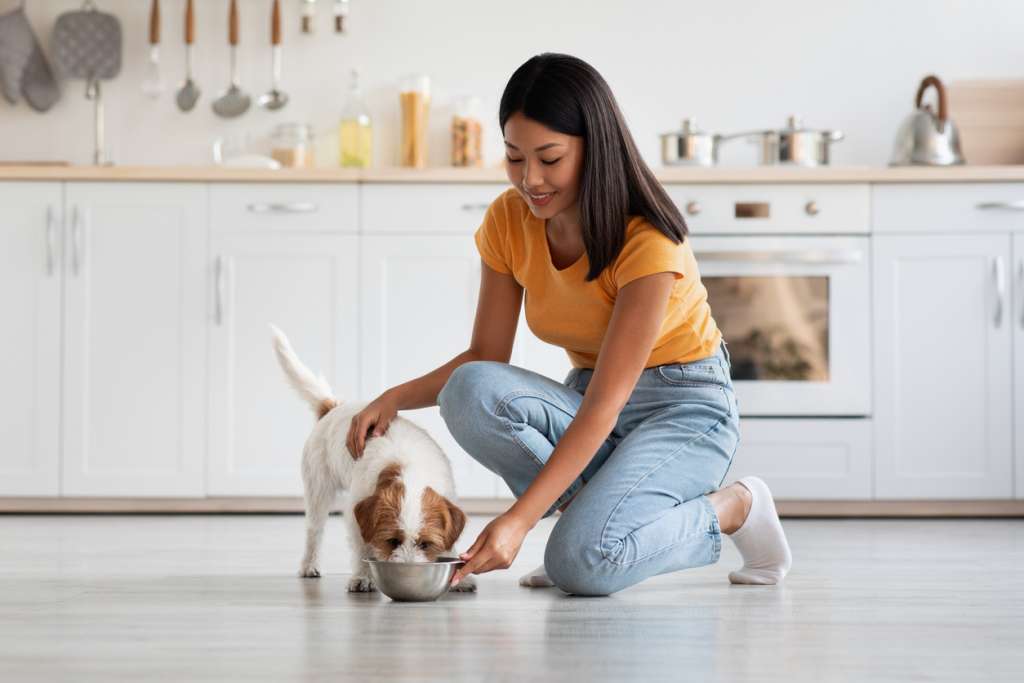

What About Prebiotics?
If you’ve heard about probiotics, you’ve likely also heard the term prebiotics. While these terms are easily confused, they refer to two separate substances.
While probiotics are microorganisms that assist with a digestive issue, prebiotics are food compounds that can support the function of probiotics.3 You can think of prebiotics as energy for your probiotics, allowing them to function at maximum capacity. Prebiotics and probiotics work in tandem to support your gut health.
6 Signs Your Dog May Need Probiotics
First, a disclaimer: it’s always best to do a quick check-in with your vet before starting any probiotics for your pup. Especially if you’re using probiotics in response to allergies, GI issues, or anything else, it’s best to make sure the probiotic you’ve chosen will be healthy for your dog, and that there isn’t anything more serious going on.
All that said, probiotics can help your pup feel their best from the inside out. But how do you know when it’s time to introduce a dog probiotic into your pet’s diet? Here are a few signs to keep an eye out for.
#1. Moodiness and Irritability
Dogs are typically all about fun. From Golden Retrievers to Bernese Mountain Dogs, the one commonality between breeds is the love of a good time. Sure, some pups are high-energy, and others are more on the mellow side, but all of them are up for a little amusement and excitement.
That is, unless something is a little off internally such as a digestive issue or a sensitive stomach.
It’s important to stay vigilant of major mood and behavioral changes in your dog, as they can be a signal of an underlying health concern. That said, before you ring up the emergency vet, you might want to consider your pup’s gut health situation.
Consider the following ways probiotics could alleviate your dog’s moody behavior:
- Minimized discomfort
- Lessened anxiety
- Maintained calm
Depending on the strain of probiotics, the physical and psychological effects of the probiotic supplement could vary. That said, gut health and general wellness are deeply intertwined, and providing a stable, consistent health boost to your pup could be just the thing to keep them in a positive mood.


#2. Dog Flatulence
Dog breeds such as Boxers and Pugs occasionally pass gas, but if you notice your pup stinking up the place on a regular basis, it could point toward an imbalance in their digestive system.
Fortunately, probiotic supplements can help clear the air, bringing comfort to you and your dog.
If you’re uncertain whether your dog’s flatulence is a potential concern, consider the following criteria:
- Frequency – How often are you noticing the problem? If it’s happening several times a day and at all hours, this could be a warning sign.
- Excessive sounds – Gurgling, stomach-churning sounds are a prime indicator of something amiss. If you hear your dog’s sensitive stomach growling and sloshing, followed by unpleasant gas, it could be time to give the probiotics a go.
- Time since last meal – Flatulence could be tied to various dietary triggers. If you notice the problem occurring more frequently after meals, you may be able to trace the issue to various dog food ingredients.
A dog probiotic supplement could offer the ideal solution to your dog’s gas problem by balancing digestive enzymes and bacteria. You shouldn’t have to hold your nose when your pooch walks into the room.
#3. Diarrhea
Again, it’s not the most pleasant conversation, and certainly not the subject to bring up without warning, but healthy stool is a sign of a healthy dog. On the opposite side of the stool spectrum, diarrhea can be an outward signal that something is wrong internally. This is a symptom of a variety of doggy illnesses—from stress to food poisoning—but if you’re noticing diarrhea regularly, it could also be a sign of poor digestive health.
Other number 2-related symptoms to watch for might include:
- Irregular bathroom times
- Messes inside the house
- False alarms
Trust us, your dog would do anything not to be dealing with this issue, so help them out by adding the best probiotic to their daily regimen.
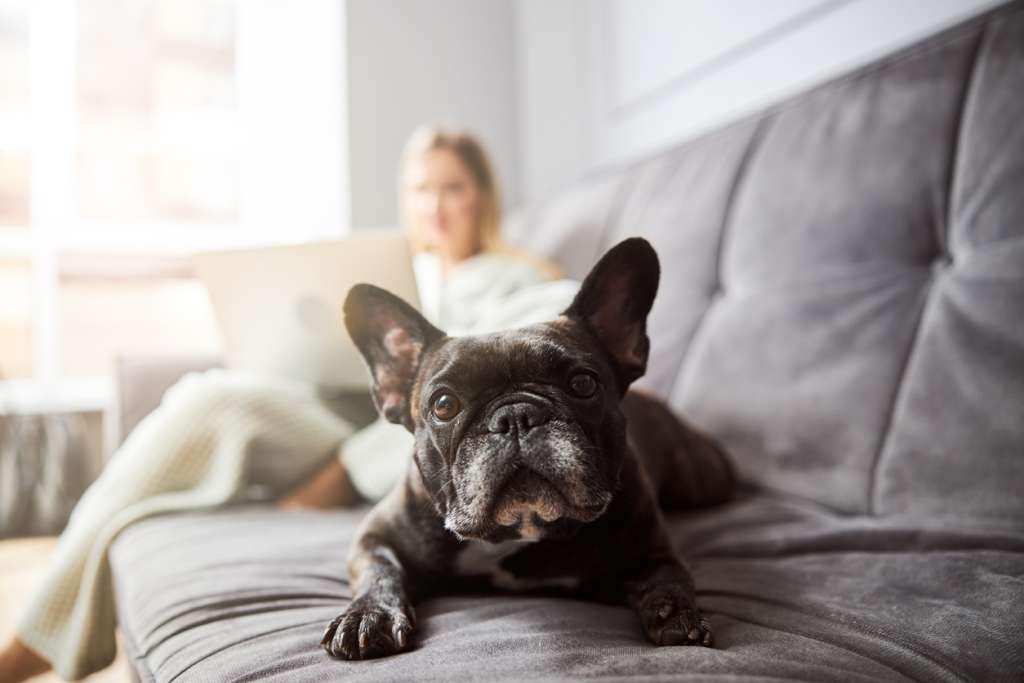

#4. Allergies
Dogs deal with allergies just the same as humans. Fortunately, dogs aren’t usually allergic to their own dander (wouldn’t that be a nightmare). Instead, food allergies are the main concern for our furry friends. While they aren’t a cure for allergies, probiotics can alleviate allergy-related symptoms by strengthening your dog’s immune system.
What do dog allergies look like? Common symptoms include:
- Itching – Every dog needs a good scratch once in a while, but constant itching is definitely a problem. Not only that, it could lead to injury if left untreated.
- Skin problems – Dry skin, rashes, and flaking are often related to allergic reactions
- Swelling – Ears, lips, and eyelids are typically the first places to swell during an allergic reaction. You may also notice hives on your dog’s body.
Notably, dogs also have allergic reactions to fleas, though flea bites are typically more identifiable and the fleas themselves can be visible to the naked eye. If you’re not noticing any parasites, you’re likely dealing with a food allergy.
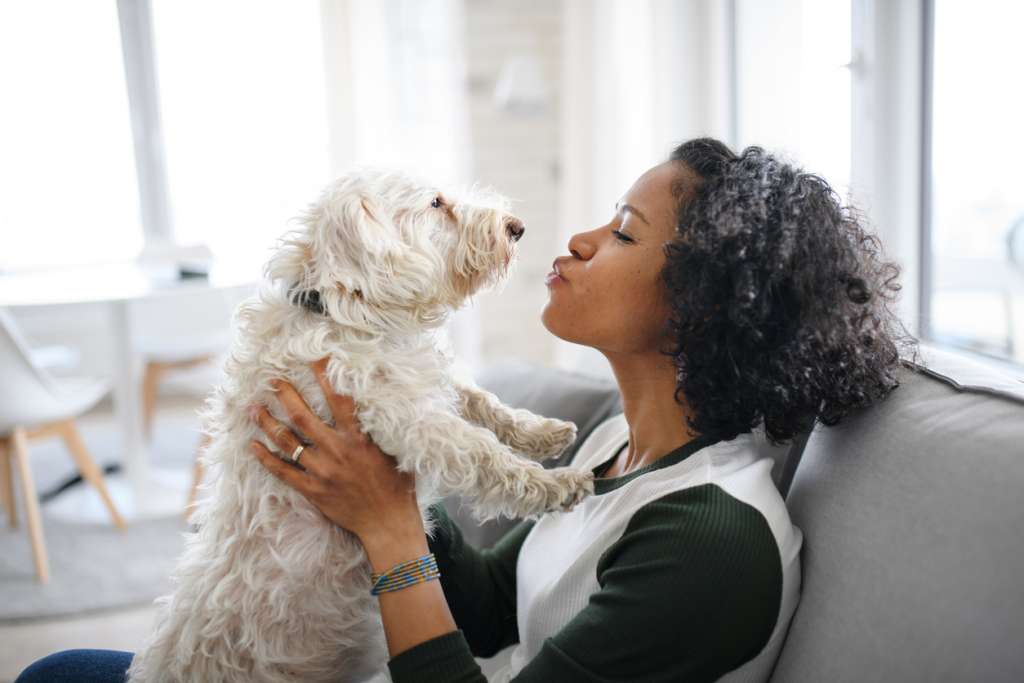

#5. Bad Breath
The fancy word is halitosis, but there’s nothing elegant about dog breath. Let’s face it, most pups don’t usually have great breath to begin with, but in some cases, dogs will have a case of some medical-grade stink breath.
How could natural probiotics help? Seriously bad breath could be coming from an internal digestive upset. Whether a result of malabsorption or a poor digestive tract, bad breath is often a byproduct of misaligned gut health, and with probiotics, you could solve the smelly problem in one swift move.
If you’re uncertain about the source of your dog’s bad breath, consider the following:
- Teeth brushing – Tell your pup to show you those pearly whites. Most of us associate bad breath with a dirty mouth, so help your dog out with their oral hygiene. Regular teeth brushing is a must for all dogs and helps keep their teeth strong and healthy as they age. Plus, it could help minimize bad breath if the issue isn’t gut-related.
Related Article: Do I Need To Brush My Dog’s Teeth Every Day?
- Recent dietary changes – Major dietary changes are always complex for dogs. After all, imagine if you only ate one kind of food every day and suddenly someone swapped it for a different one. Give your dog time to acclimate to their new diet and hold off on any other big changes until they’ve gotten used to it. Bad breath could just be a short-term side effect of your dog adjusting.
- Other health issues – If probiotics, brushing, and time haven’t cured your dog’s bad breath, it may be a sign of a more serious health issue. It could also just be a sign of your dog’s unfortunate body chemistry. Whatever the case, check-in with your vet to get a fuller picture of the problem and ensure you have a healthy dog.
#6. Yeast Problems
As strange as it might sound to those unfamiliar, yeast is a real issue for many pups. That’s because this tiny microorganism lives inside your dog’s gut and can run rampant without enough protective probiotic bacteria.
For many dogs, probiotics’ healthy bacteria offers the best way to nip this yeast problem in the bud.
What happens when yeast gets out of control? Common side effects include:
- Foul odor
- Ear infections
- Skin inflammation and redness
- Crusty or thick skin
Sound unpleasant? Imagine how your dog feels. Fortunately, yeast-related discomfort can be a short-term problem when you prioritize your pup’s gut health. That said, if you notice this issue recurring even after natural probiotics, it could be time to consult with your vet.
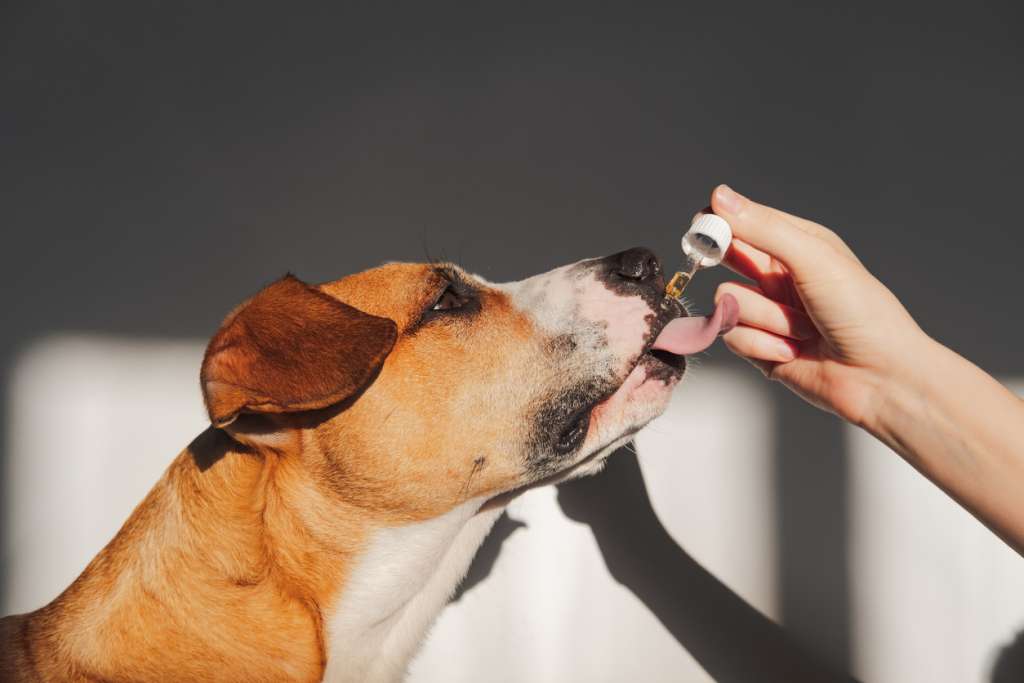

Wag Your Way to Proper Pup Gut Health with BARK
You are what you eat—and so is your dog! A healthy, balanced diet, topped with the best probiotic regimen, is a surefire way to encourage overall wellness for your pup. Pay close attention to your dog’s health needs and digestive system so that you can expect more playful playtimes, more loving snuggle sessions, and an overall happy pup. That’s our M.O. at BARK.
We wear our dog obsession proudly. That’s why we’ve built a one-stop-shop for all your doggy needs, including probiotics. Explore our Prebiotic + Probiotic Bites in peanut butter and chicken flavor to find your dog’s favorite, gut-health-promoting snack. Visit BARK today to discover the next puppy-approved product for your four-legged friend.
Sources:
- American Kennel Club. Probiotics for Dogs. https://www.akc.org/expert-advice/nutrition/probiotics-for-dogs/
- Pet MD. Probiotics for Dogs: Do They Work?. https://pets.webmd.com/dogs/foods-with-probiotics-for-dogs
- VCA Hospitals. Probiotics. https://vcahospitals.com/know-your-pet/probiotics
- VCA Hospitals. Yeast Dermatitis in Dogs.https://vcahospitals.com/know-your-pet/yeast-dermatitis-in-dogs



